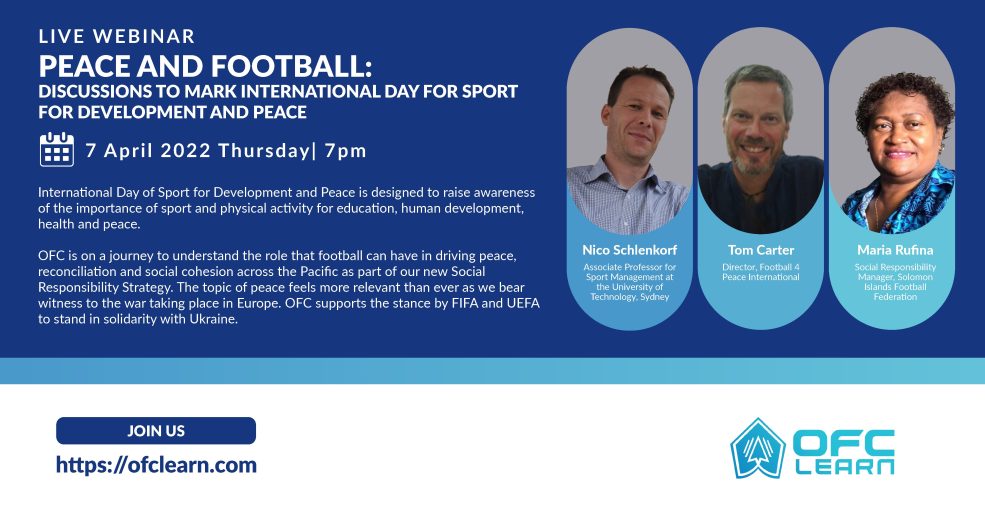The Oceania Football Confederation is excited to bring a message of sport and peace, on the day devoted to observing how the two work together. A webinar is being held at 7pm on 7 April, bringing together key subject matter experts to discuss how sport can lead the way for understanding in the turbulent times we’re facing right now.
The webinar is to mark the International Day of Sport for Development and Peace (IDSDP), which takes place annually on 6 April. It was created by the United Nations and first held in 2013, with the date being chosen as it is the same as the inauguration of the first modern Olympic Games, in 1896. The day presents an opportunity to recognise the positive role sport and physical activity play in communities and in people’s lives.
The speaking panel includes Dr Thomas Carter who is a sport anthropologist and specialist in sport migration, who is also the head of Football 4 Peace. Professor Nico Schulenkorf from the University of Technology, Sydney, has been involved in sport-for-development and health promotion programs around the world, including the Pacific Islands. They are joined by Maria Rufina, who has been the Solomon Islands Football Federation social responsibility manager for the past eight years.

OFC head of social responsibility Michael Armstrong says having the expertise of such global experts is “incredibly exciting”.
“Given current events in our region and in particular the current conflict in Europe, it is more important than ever that we look at the role of football and other sports as an important site for the reduction of violence and promotion of peace.
“OFC is working to expand the scale of our reach of our social responsibility activities through our upcoming Social Responsibility 2030 Strategy. Engaging in conversations like this one will be vital as we embark on a journey to understand and maximise our impact.”
The UN’s theme of IDSDP 2022 is Securing a Sustainable and Peaceful Future for All: The Contribution of Sport. Given the current situation in Ukraine it is being seen as a powerful way to promote the use of sport as a tool to advance human rights and sustainable development. As the world game, football brings people together like no other.
“It often transcends group difference,” says Armstrong.
“Participation teaches tolerance, respect and offers a site for empowerment of marginalised groups. It can however, cause division and exacerbate prejudice and division. It is therefore, essential that we critically review our role and deliver intentional interventions to promote more peaceful and cohesive communities.”
Please register here for the event on 7 April at 7pm NZT:
https://ofclearn.com/events/peace-and-football/

